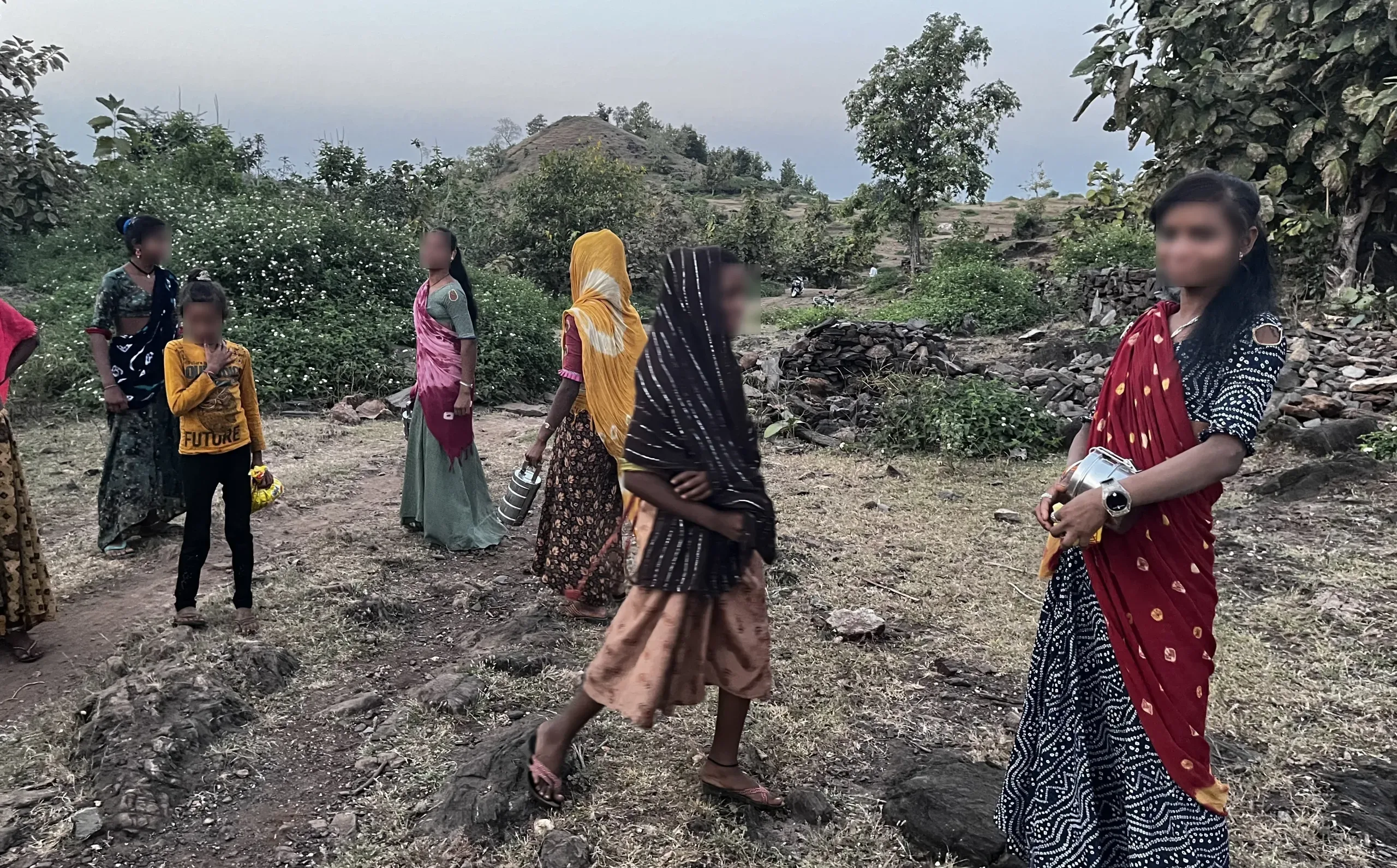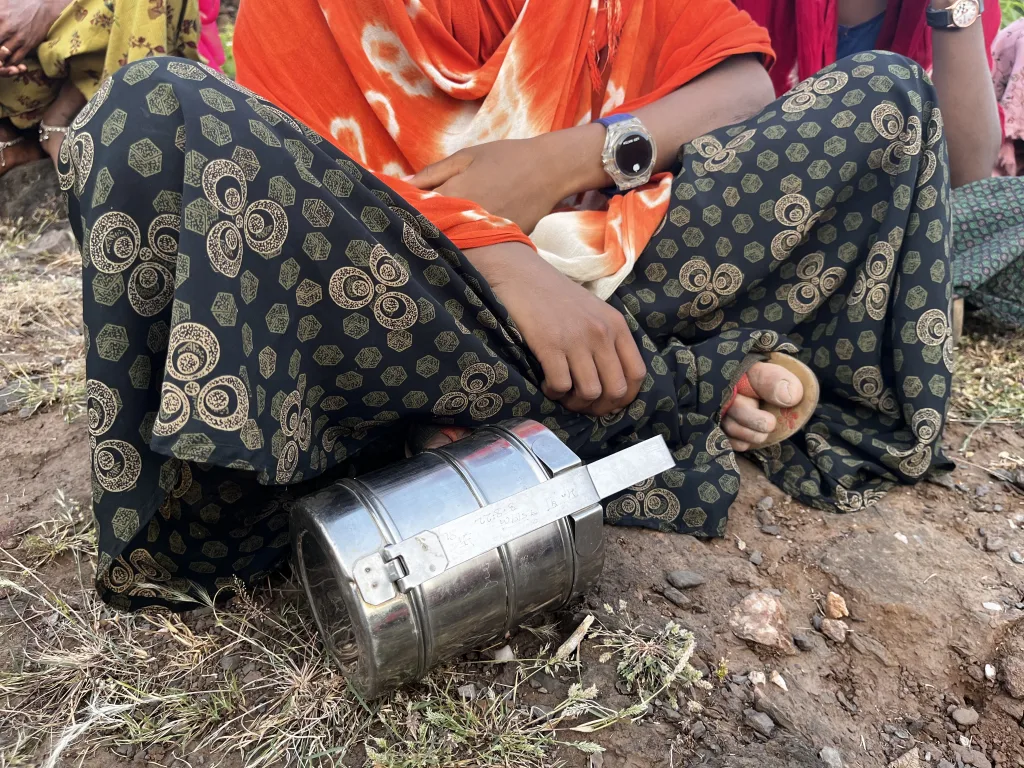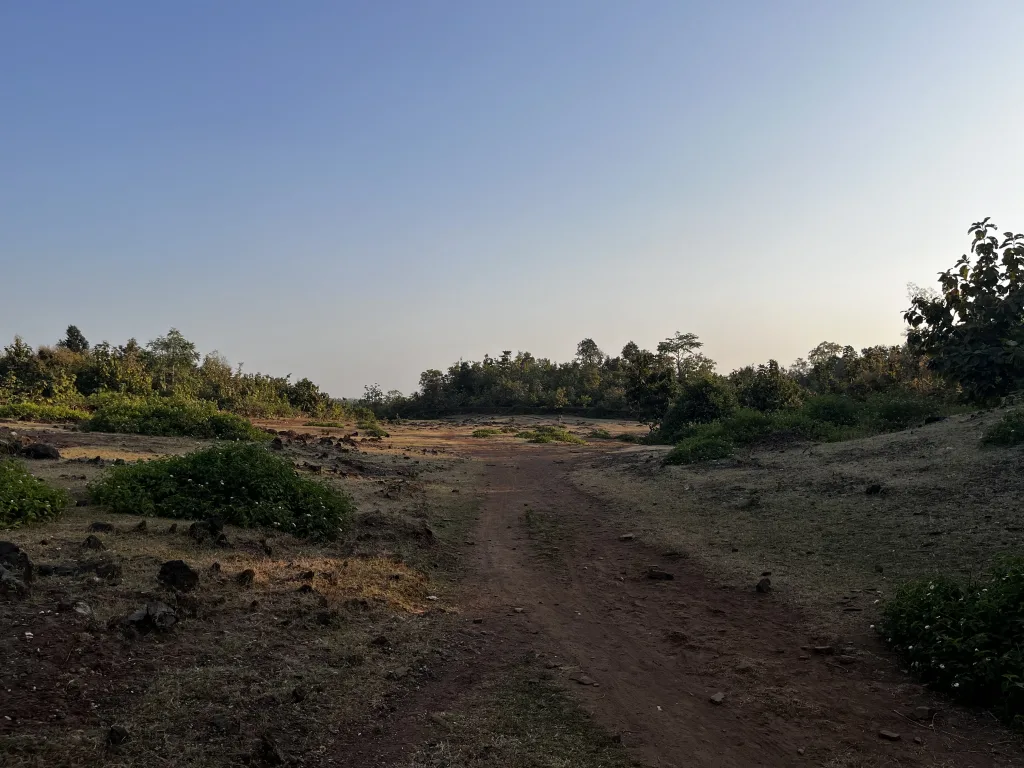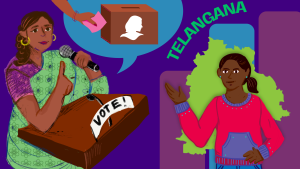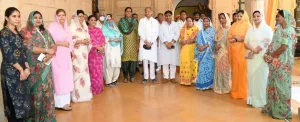Kushalgarh is a small tribal village located in the Banswara district of Rajasthan and poverty is so acute that women are forced to migrate for work. Mrinula, 18, had an argument with her parents because she refused to accompany her parents to Gujarat and Madhya Pradesh in search of work.
In southern Rajasthan, male migration is common in the Adivasi community because the natural habitats that supported them have been destroyed and there are limited work opportunities.
With men, daughters and wives too are forced to move to neighboring states. The women work at construction sites for which they get the minimum wage of Rs 200 a day.
Mrinula, who is still a school student, told Behanbox that it is mostly during vacations that women migrate with their family to earn income. However, the living conditions at the destination are often hostile. “There was no toilet where we went for work last time and we had to make do in a makeshift tent in the open,” Mrinula says in a low voice.
She recalls being made to work long hours and falling sick. There is another reason she wants to stay home. Last time she travelled with her family, she was sexually harassed by the other men at the camp. “My father is too drunk to help. Which is why this time I did not go,” she says, worried about the repercussions.
Rekha, 18, who migrates with her family for work said that women are bullied and harassed. “If we used to sit down for a minute to take a breath, the middleman would come shouting asking us we will not get money,” she says.
Most employers and contractors offer very basic facilities for labourers, some not even that. “There are times when we don’t even have facilities for food. We are not even given mattresses, just a room to sleep in,” says Rekha.
Rajasthan has a Balika Distance Education scheme that was introduced last year to give an opportunity to girl students pursuing UG, PG, or diploma certificate courses. The selected girl candidates are supposed to receive fee reimbursement for the course.
But the girls say they know nothing about any scheme for women.
“There is no government representation in the village to tell us that there are such schemes available. If the villagers know, they don’t tell anyone,” says Rekha who has finished her college education, and wants to pursue a teaching course. But with no resources, she has to either migrate for work or do household chores.
“I want to prepare for the government teaching course and the village has no facilities. So, we usually have to go to the town. However, the rent and other expenses become difficult so my parents have said that I don’t need to study,” she said.
Social activists have raised the issue and demanded a better implementation of schemes and policies for women. “We need to end the distress. The focus of government policies should ensure that women are not forced to migrate for livelihood. There also needs to be a better implementation of the existing schemes,” says Kamlesh Sharma, programme coordinator at Ajeevika Bureau.
Many women that Behanbox spoke to had just one major complaint: “Political leaders simply don’t care about women’s issues,” says Anita, who lives in Berawal.
The complaint resonated with the echoes of other women. “Candidates only interact with men and give them alcohol as a bribe. Most of the women vote for candidates who their husbands ask them to,” says Rekha.
Only 25 of the 200 seats (1.25%) in Rajasthan are reserved for members of the Adivasi community. Local tribal parties, such as the Bharatiya Tribal Party and Bharat Adivasi Party, despite their limited resources, are trustworthy, say members of the Adivasi community interviewed by Behanbox.
“It is about time we understood that elections are not the only time women issues need to be raised. There is hardly any representation of women in politics,” says Naruka.
